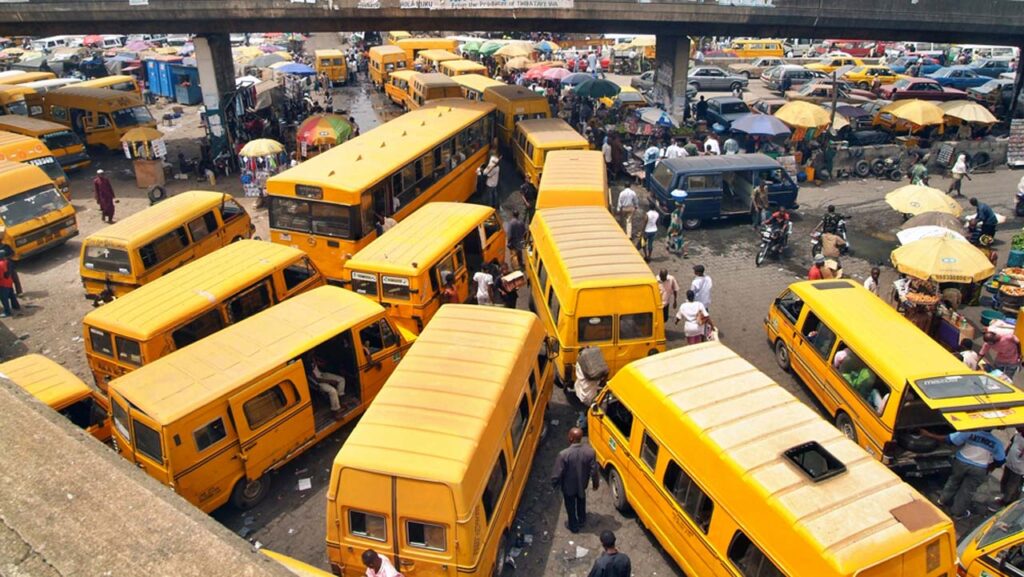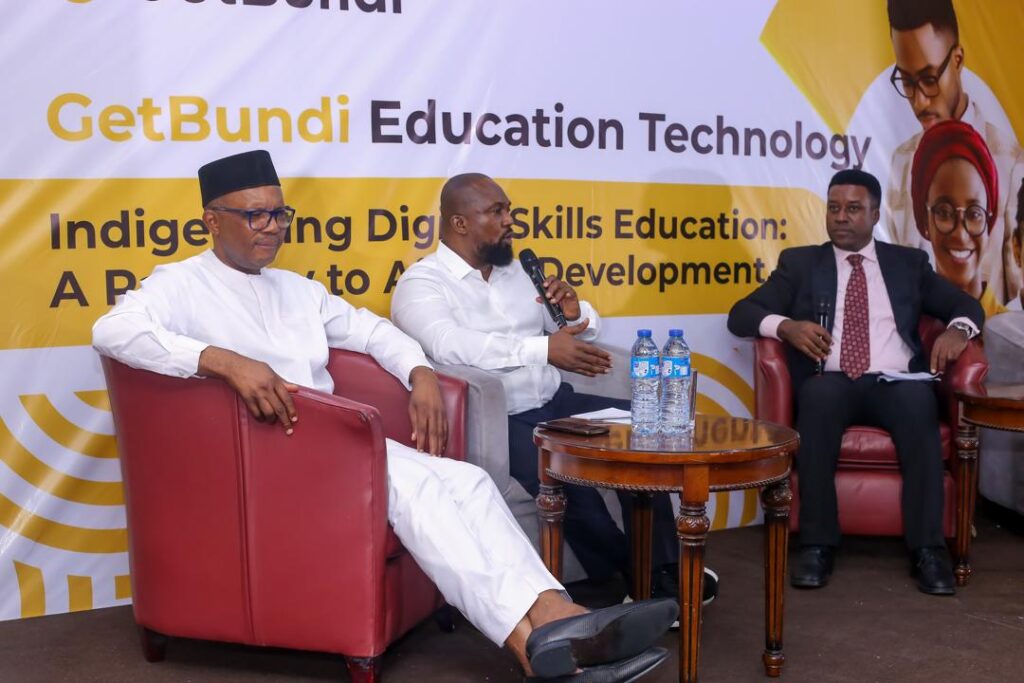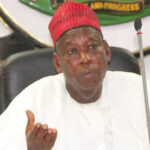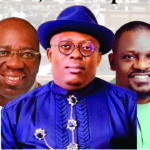
As the general elections draw close, there are genuine concerns on the participation of women despite being almost half of the nation’s population.
According to data by the Independent National Electoral Commission (INEC), women accounted for 39.6 million (47.14 per cent) of 84 million voters registered in 2019, and 44.4 million (47.5 per cent) of the 93.5 million in 2023. Women and youths form over 75 per cent of registered voters ahead of 2023, and will be the major determiner of the winners in the 2023 elections.
Nigeria is a signatory to the World Conference on women in Beijing, which advocates 30 per cent affirmative action and National Gender Policy (NGP) recommendation of 35 per cent affirmative action for a more inclusive representation of women both in elective and appointive positions. Nigeria is also a part of the convention on the elimination of all forms of discrimination against women (CEDAW), The Beijing platform for Action (BPFA), Solemn Declaration on Gender Equality in Africa, and The Gender Agenda of Africa 2063, amongst others.
Ahead of the 2023 elections, there is a 2.8 per cent decline in the candidacy relative to 2019, with only 10.1 per cent female candidates fielded by political parties. These concerns were the thrust of an enlightenment workshop involving gender-focused Civil Society Organisations (CSOs). It was organised by ElectHer, in partnership with INEC.
For the Resident Electoral Commissioner (REC), Lagos, Mr. Olusegun Agbaje, women are the fulcrums around which social, economic, and more importantly political activities of the nation rotate. Our women need to do more in political participation to ensure accomplishment of our common goal – free, fair, inclusive, credible and acceptable general elections.
“It is therefore in recognition of this that the commission created initiatives that have indicated that measures should be taken by all stakeholders to ensure that women’s rights of free and fair participation in the electoral process is protected, secured and preserved. It is imperative that we embark on efforts that will promote and protect women’s interests, security, and create a violence-free atmosphere for massive participation in the election to entrench the culture of inclusive and participatory democracy that meets the minimum requirements of fairness and credibility.”
Agbaje stressed that Permanent Voter Card (PVC) is the sole instrument required for voters to participate in an election.
“It is an important eligibility instrument for voting. Without it, no citizen will be allowed to partake in the forthcoming general elections. However, the commission has a staggering number of uncollected PVCs of eligible voters. The numbers of uncollected PVCs for women are equally large. Therefore, our women folk, particularly the gender-focused CSOs and other stakeholders, should rise up to the challenge to ensure that PVCs are collected.”
National Commissioner in charge of Outreach and Partnership, Prof. Kunle Ajayi revealed that the Continuous Voter Registration report for the 2023 general elections indicates that there are 93,469,008 voters out of which female constitute about 44 million.
“As we draw closer to the D-Day, we must continuously improve the collaboration and synergy between the commission and CSOs in ensuring that we achieve the common goal of a peaceful and inclusive election. The commission is also taking the lead in ensuring that no woman is left behind in the electoral process.”
According to INEC’s National Commissioner, Prof. Rhoda Gumus, women have remained largely under-represented in the realms of political power throughout Nigerian history. He listed attempts made to address the gender imbalance since the beginning of electoral democracy in 1999, including public campaigns, proposed legislative reforms, and internal measures within political parties.
“Yet assessment of the performance of female candidates in Nigeria’s most recent general elections revealed a disturbing trend: women’s representation in elective and appointive offices has not only failed to increase, but appears to be in decline.
“The Gender Strategy Advancement International (GSAI) revealed that women political participation in Nigeria falls below the world and African continental standard. According to the report, the national average of women’s political participation in Nigeria remains at 6.7 per cent in elective and appointive positions. This is below the global average of 22.5 per cent, Africa regional average of 23.4 per cent and West African Sub Regional average of 15 per cent. Accordingly, Nigeria is just 4.1 per cent in the national parliament, compare to other African countries: Rwanda, (67 per cent); Senegal (about 57 per cent).
“The list of candidates vying for electoral positions, both for president and members of the parliament, reveals heightened gender bias; one female out of 18 aspirants. One of the trends that the world will be watching as Nigerians head to the polls on February 25 and March 11, 2023 for both presidential and governorship elections is the turnout of Nigeria’s huge women population, a total of 44, 414, 846 (47.5 per cent).”
Gumus added that the trend around the political environment in Nigeria had shown that women might never achieve the mandated 30 per cent affirmation as enshrined in the Beijing plan of action except political parties create a support framework for mentorship for prospective aspirants with established women politicians; build mass coalition of women support and advocacy groups and grassroots women associations; create enabling environment free from violence and re-enforce quota system at all levels of governance.
The INEC official said women should also be encouraged to get involved at rural level, by building platforms and networks to interact and share information on politics participation and benefits.
“Encourage town hall meeting for political parties and women participation as it could increase women’s participation in the political process, especially in regions where cultural and religious norms have limited women’s participation in governance and the political process,” Gumus advised.
For the Founder and Chief Executive Officer, ElectHer, Ibijioke Faborode, limiting women’s political space is to disempowering them.
“We can make a case for sustainable development from gender participation in politics. The exclusion of women is the reason poverty has a feminine face in Nigeria. This is because men have been calling the shots leading to less gender-sensitive laws.
“A research by UN Women has shown that when women are equally represented in government, more investment is directed to education, health, and social welfare. Having more women in leadership is linked to stability, less corruption and peace. Thus, equal gender representation is smart and beneficial politics for the general populace.
“For women to actualise their fullest potential, they must be actively engaged and involved in shaping their own economic and social reality through direct participation and representation. Hence, CSOs and the electoral body have a huge role to play being custodians of democracy.
“We must avoid a repeat of 2019, by ensuring that at least 90 per cent of the female candidates transit to elective positions by mainstreaming them to the electorates and giving them human and technical support. We must ensure that women have adequate information to make choices at ballot boxes and ensure that they know the long-term implication of some of their activities such as vote selling since they are the targets of vote-buyers.
“There should be interventions not just focused on female voters but also on male voters, to curb vote-buying, most especially collaborative interventions focused on instigators of vote-buying which are the political parties and candidates.”
A gender advocate and professor at Ekiti State University, Ado-Ekiti, Grace Modupe Adebo while speaking on the role of women in democracy said that in a true democratic process, all voices, must be heard, especially those of women, marginalised groups and people with disabilities. “Participation in democracy is a fundamental and non-negotiable birthright of women to participate in the affairs that concerns them. This determines their destiny and how far they can go in life.”
Adebo noted that if women are part of elective governance and members of decision making authorities, it will assist in eliminating all forms of discrimination against them, thus, incorporating their interest in governance.
“Without women’s active participation in governance and politics, no nation can achieve sustainable development, considering their population in the economy. True democracy can never be achieved with the exclusion of women or their low participation in the electoral process. Only women can genuinely and adequately advocate and ensure equality of both sexes. Participation facilitates women’s direct engagement in public decision-making and is a means of ensuring better accountability for women.
“Women’s political participation will result in tangible gains for democracy, including greater responsiveness to citizens’ needs, increased cooperation across party and ethnic lines, and more sustainable peace,” Adebo said.INEC’s Gender Policy
The INEC Gender policy (IGP), which was first adopted and launched in 2014, has created widespread awareness on gender and election concerns, bringing to visibility the need for sustained engagement with systemic barriers and patriarchal strongholds such as the monopoly of electoral and political processes in Nigeria as in other parts of the world.
According to Gumus, the inclusion of women in the democratic spaces remains a major bridge to cross in the effort to effectively address the exclusion of women in elective and representative governance in Nigeria. This IGP is a response to the National Gender Policy (2006) and Vision 2020 (2009). These policies both recognise the gender equitable development to be promoted in state and non-state actors.
“One of the crucial targets of INEC is to ensure women’s inclusivity as well as full participation and representation in the 2023 general election.”
In line with INEC’s mandate, the IGP will position the commission as an enabler of existing and unfolding policy and legislative reforms by complementing through its gatekeeping role as it relates to constitutional and legislative reform efforts to speed up gender inclusion and women’s increased participation in decision making through the electoral process.
Speaking on the role of the IGP, the Chief Executive Officer, Nigerian Women Trust Fund (NWTF), Mufuliat Fijabi said that the policy serves as a guide to INEC to put gender perspectives into it’s election activities, operations and in terms of implementation of its strategic plan.
“The impact of the policy from my own assessment, is that it will assist INEC to think more proactively from a gender perspective. Which means that if it is conducting voter education, for example, it is going to target Nigerians with gender in mind and make deliberate efforts to reach out to women wherever they may be whether in the marketplaces, in offices, in schools or in hospitals, to ensure that as an institution, it is not doing things the usual way – not thinking of gender.
“By planning deliberately to be gender responsive because of its policy, it means that there is the intention to be inclusive in its electoral activities. So it’s going to assist a lot to build a kind of electoral process that acknowledges that there is a population that needs to be targeted differently, to achieve a gender balance in the electoral space. If you look at some of the deployments as well, you find out that in previous elections, because of the poor space of gender policies, INEC has also made deliberate efforts to deploy both men and women into electoral operations, and of course in it’s recruitment, there is a concern of gender. It is not just recruiting without paying attention to gender needs.”












